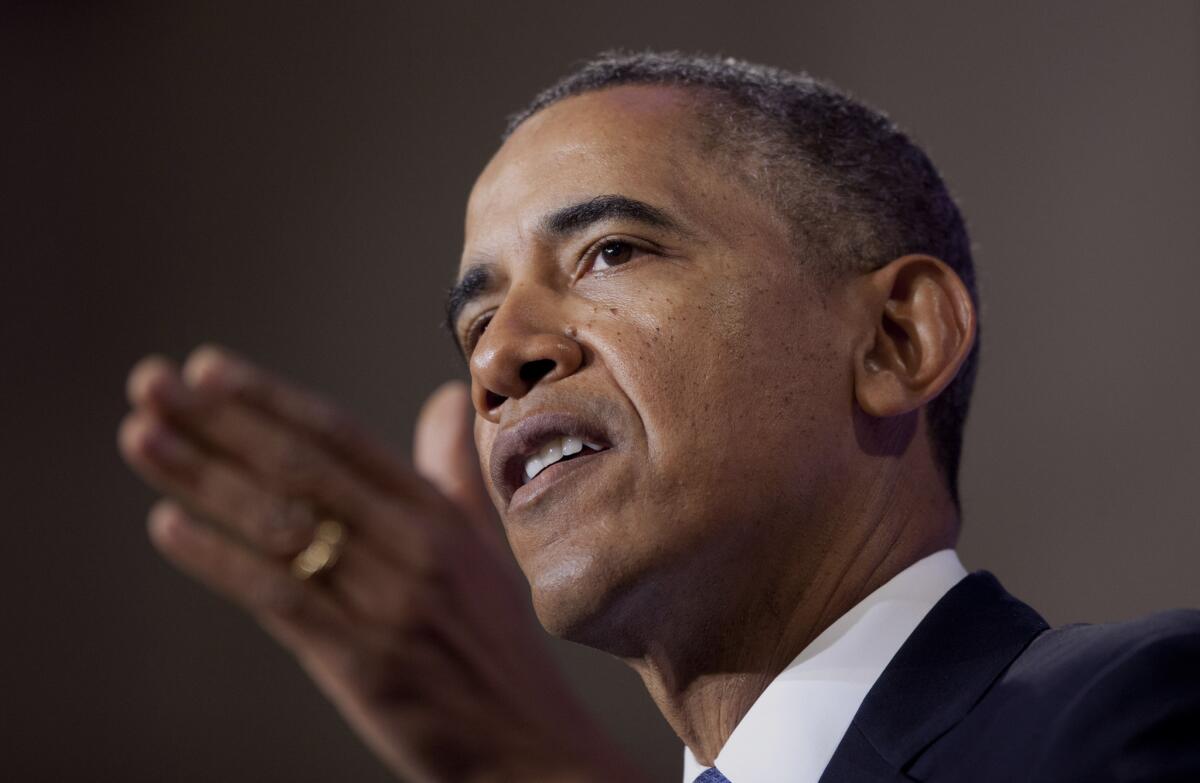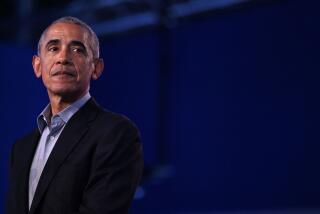A new day at the NSA

Individually, the concrete steps President Obama announced Friday toward reforming the National Security Agency’s surveillance programs were modest. Taken together, though, they signal the end of an era of unfettered escalation in U.S. intelligence-gathering.
Since its establishment in 1952, the NSA’s history has been one of almost nonstop expansion. But for most of that time, the agency still faced limits on what kind of information it could gather and in the legal strictures that governed its programs.
That changed after the terrorist attacks of 2001, which prompted then-President George W. Bush to demand an all-out effort to collect every scrap of information available.
His order came at a time when the Internet, email, instant messaging and low-cost voice communications were pouring an unprecedented amount of private information into a global electronic network, available for sophisticated eavesdroppers to tap.
Bush brushed aside legal constraints and ordered the NSA to collect domestic telephone and email communications without court warrants. Later, Congress and the Foreign Intelligence Surveillance Court legalized much of that program retroactively, including the NSA’s collection of domestic telephone call records, known as metadata. The principle driving intelligence-gathering had become collect first, ask questions later.
Obama’s proposals are step back from that rule.
The president didn’t cancel any existing surveillance programs; indeed, he reaffirmed the government’s argument that telephone metadata should still be collected — though with new safeguards.
To many civil liberties advocates, his cautious moves were disappointing. But while Obama’s practical steps were small, the conceptual steps were large. Instead of accepting the doctrine that a global war against terrorists justifies almost any expansion of information-gathering, he said the entire U.S. intelligence enterprise should be subject to more public scrutiny and more stringent cost-benefit tests.
“The power of new technologies means that there are fewer and fewer technical constraints on what we can do,” Obama said. “That places a special obligation on us to ask tough questions about what we should do.”
The immediate practical effects of asking those questions will be few. The telephone metadata will still be there — and still, for the time being, held in one big database at the NSA. But analysts who want to check U.S. telephone records of anyone suspicious will now need permission in each case from the federal surveillance court.
A second Obama innovation — the idea that the NSA should treat foreigners the same way it treats Americans when it comes to privacy — is a revolutionary idea within the intelligence community, which is used to drawing a clear line between us and them. But it won’t shield foreigners from being subjects of U.S. surveillance, unless they are on the short list of a few dozen allied leaders whose phones won’t be tapped.
The larger impact, over the long term, may come from a less obvious part of Obama’s reforms: his directives that intelligence agencies, including the NSA, face more stringent oversight, and that the FISA court make public its decisions affecting privacy rights.
Finally, Obama’s new positions may help change the debate in Congress over the NSA’s powers.
The president said that although the government should collect telephone metadata, in the long run, it shouldn’t be the one to hold it. That almost certainly means a vigorous debate in Congress as surveillance programs come up for reauthorization during the next two years. Some advocates for NSA reform in Congress, including Sen. Ron Wyden (D-Ore.), praised Obama’s speech for reinvigorating that debate, even though it fell short of their wish list in other respects.
A year ago, before NSA renegade Edward Snowden revealed dozens of once-secret programs, these issues were almost entirely unknown, even to members of Congress. Even a month ago, momentum toward NSA reform appeared to have stalled. But with Obama’s speech Friday, it seems certain the issues will have a full airing, and the president has made clear where he stands.
The era in which a president could order the NSA to expand surveillance programs with little oversight from Congress and no scrutiny from the public is over. That’s a big change, and a good one.
Twitter: @DoyleMcManus
More to Read
A cure for the common opinion
Get thought-provoking perspectives with our weekly newsletter.
You may occasionally receive promotional content from the Los Angeles Times.











